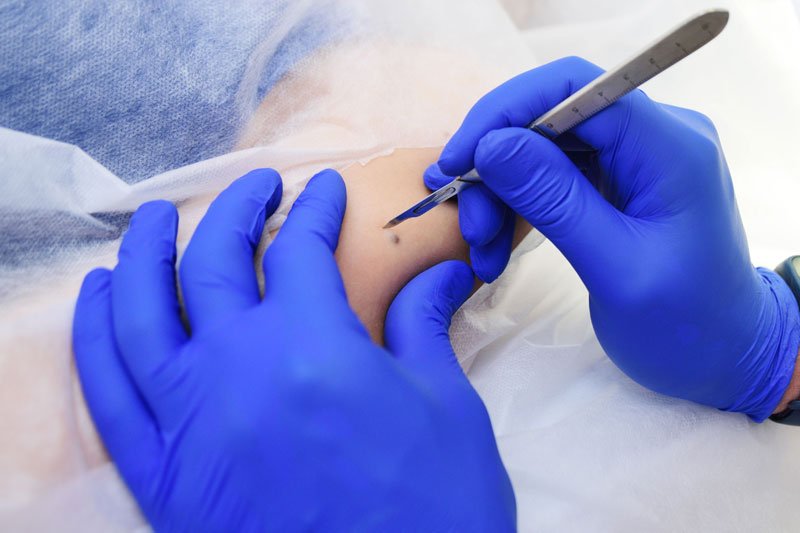
Skin Cancer & Atypical Mole (Dysplastic Nevus) Removal
Skin cancers such as basal cell and squamous cell carcinomas, and dysplastic nevi (atypical moles) require complete removal to ensure that they won’t grow or spread over time. This can be accomplished through surgical excision, an office-based procedure that uses a local anesthetic and typically takes thirty minutes to perform. Depending on the type of procedure, your Advanced DermCare surgeon may place one or several layers of sutures, which will need to be removed in 1-3 weeks depending on the anatomical site. You will leave our office with a pressure dressing, which should stay in place for roughly 24 hours.
Pre & Post-op information
Prior to performing your surgery, we will discuss what to expect, including activities and medications to avoid before and after your procedure. If feasible, we ask you to hold blood thinners such as aspirin and ibuprofen, although you should never discontinue these without first checking with your primary care physician.
After surgery, you should plan on restricting heavy lifting, running or activities that may put excessive stress or tension on your surgical site. You should never schedule any surgery right before traveling out of town, since we will want to see you immediately in the rare event of a complication such as bleeding or wound infection.
Alternative treatments
In some cases, your physician may recommend alternative treatments for superficial skin cancers such as basal cell carcinomas or Bowen’s disease – a non-invasive form of squamous cell carcinoma. Depending on the location and size of these skin cancers, you may be a candidate for a simple scraping procedure called electrodessication and curettage, or treatment with a topical chemotherapy cream.
Remember: if you are diagnosed with a skin cancer or atypical mole, you have a greater risk of developing future skin cancers and should be followed regularly for screening examinations.
